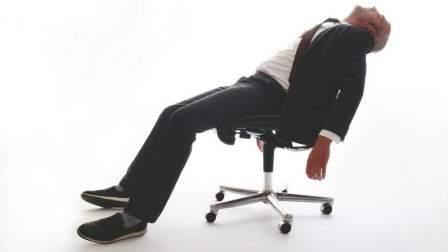Have a sleep routine to avoid insomnia, say experts

Most of us get selfish when it comes to 'me time', sometimes even at the risk of compromising health. The classic case is on the weekend when you catch up on your Netflix binge watch or browse social media, even if it means staying up the whole night.
We all know of some families in the UAE who are awake the whole night and catch up on sleep the next day. Subsequently, what begins as 'one-off' incident becomes a routine or set pattern. Are we playing with our health and those of loved ones? Are we laying the foundation for insomnia?
Dr Yassir Joudaane, psychiatry specialist at NMC Royal Hospital, said: "We were never designed for this sedentary, indoor, sleep deprived, socially isolated, overfed yet malnourished, fast-paced city lifestyle. Our brains are designed to survive, adapt and even thrive, but only if our brains get enough oxygen, nutrients, sunlight... and above all, enough sleep," he said.
"Newborns need to sleep 14 to 17 hours per day and adults, seven to nine hours... When you can't sleep like a baby or like an adult, that's insomnia," Dr Joudaane noted. What are the causes of insomnia? Dr Hady Gerdak, internal medicine, pulmonary diseases, sleep disorders and critical care at Medcare Hospital, says that insomnia is multifactorial and is becoming common.
"Recent studies have shown up to 20 per cent of the population suffers from bouts of insomnia. Teenagers are affected a lot more than before because of smart devices. They spend hours at night surfing social media, leaving them to sleep deprived. This causes insomnia in the long run," Dr Gerdak said. Another group is the working class and working parents are particularly under stress. Anxiety and stress are the most common causes of insomnia in adults. Managing stress is key in treating it.
"We may also have medical causes, like hyperthyroidism, iron and vitamin B12 deficiency. Anaemia may also be a reason," Dr Gerdak added.
Endorsing a similar view, Dr ?Mohammad Hamad Mohammad, internal medicine specialist at Al Tadawi Medical Centre, Dubai, said: "There are many causes of insomnia (some mild and others more serious). Some of them include nasal/sinus allergies, gastrointestinal problems such as reflux, endocrine problems such as hyperthyroidism, arthritis, asthma, neurological conditions such as Parkinson's disease and chronic pain."
Insomnia can affect anyone, of all ages, genders or social class. However, it is more prevalent in women than in men.
Dr Shyam Babu Chandran, neurologist at Zulekha Hospital Dubai, said: "Insomnia is a common sleep disorder that can make it hard to fall asleep, hard to stay asleep, or cause you to wake up too early and not be able to get back to sleep. It can be primary where the only issue is insomnia, or secondary when it is associated with other medical illness. It can be transient when it is of short duration, or chronic when it lasts for months to years."
Insomnia is common among people of all ages, ranging from teenagers to elderly. Nearly everyone has an occasional sleepless night. But the risk of insomnia is higher in women due to menstrual cycle changes. It also affects those who are over 60, with mental or physical health issues, drugs or medicine users, those facing stress and irregular schedules and frequent travellers, disrupting their sleep-wake cycle.
What is the impact of insomnia if left untreated? Lower performance on the job or at school; slowed reaction time while driving and a higher risk of accidents; mental health disorders such as depression or anxiety; substance abuse; increased risk and severity of long-term diseases or conditions such as high blood pressure and heart disease.
The ideal sleep quota varies from person to person, but most adults need seven to eight hours a night at least. Dr Hady advises steady sleep routines and making ambient changes as the key to getting a good night's sleep.
Going to bed at the same hour and waking up at the same time is essential, to maintain our biorhythmic clock. Maintain a cool, dark and silent room. Avoiding coffee and stimulants even during the earlier hours of the day is very important, as the half-life of coffee may be more than 12 hours. Relaxing before sleep and avoiding electronics is most important, to get our brain to relax. Reading a book allows the brain to unwind. If all these measures do not help, taking a doctor-prescribed sleeping aid would help, but it's recommended only for short periods as they may get addictive.

